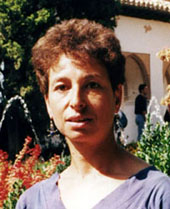| Páginas sobre el tema: [1 2] > | Poll: Can translation be taught as a skill? Autor de la hebra: ProZ.com Staff
|
|---|
This forum topic is for the discussion of the poll question "Can translation be taught as a skill?".
View the poll results »
| | | | Simon Bruni 
Reino Unido
Local time: 02:28
Miembro 2009
español al inglés
Most of the translation process, like language itself, is instinctive.
| | | | B D Finch 
Francia
Local time: 03:28
francés al inglés
+ ...
| Of course ... | May 26, 2011 |
...it can be taught. However, whether or not the student successfully learns it is something else.
| | | | |
|
|
|
Michael Harris 
Alemania
Local time: 03:28
Miembro 2006
alemán al inglés
you either have a tallent for it or not. You can have skills in the subject you are translating though
| | | | neilmac
España
Local time: 03:28
español al inglés
+ ...
I do have strong opinions about non-native translators though, which I shall try to keep to myself today.
I agree with the previous posters, especially Simon's comment that an important art of translation is instinctive and based on feelings and notions rather than skills which can be learnt or acquired.
Having studied and worked in foreign language teaching before getting into translation full time, I did come to the conclusion that some people are definitely not cut ... See more I do have strong opinions about non-native translators though, which I shall try to keep to myself today.
I agree with the previous posters, especially Simon's comment that an important art of translation is instinctive and based on feelings and notions rather than skills which can be learnt or acquired.
Having studied and worked in foreign language teaching before getting into translation full time, I did come to the conclusion that some people are definitely not cut out for learning languages other than their own, and I believe that translation is similar in that some people would be best to try something else and leave an open playing field for the rest [of us].
Yesterday, to return to my initial comment, I replied to a survey (which I assume other prozers may have received too) sent via proz by some (Spanish) translation students regarding inverse translation (in this case, concerning them translating into languages other than Spanish). My responses included the fact that I think inverse translation is indeed a worthwhile part of any translation course, for several reasons which I won't go into here. However, when it is included in these courses with a view to the eventual (native Spanish speaking) graduates being equipped to undertake translation into English, my stance tends towards protectionism and to some extent indignation at what I (and I assume many of my peers) see as unwanted competition.
While understanding the reasons for this intrusion (higher demand for English than Spanish target texts, high unemployment), I cannot help but resent it, especially when the results fail to come up to scratch.
So, to sum up, yes, I believe that translation skills can be learnt, but it is not always desirable, especially when it refers to inverse translation.
[Edited at 2011-05-26 11:21 GMT] ▲ Collapse
| | | | Tatty 
Local time: 03:28
español al inglés
+ ...
Of course it can be taught, but sucess rather depends on how good your translation teachers are.
Translation would probably enjoy a much improved image if everyone translated into their own language too.
| | | | | Like so many skills, you have to have an aptitude for it | May 26, 2011 |
Like so many talents, it can be guided, cultivated and improved.
Mercifully you don't have to invent the wheel yourself.
A lot of good ideas and experience can be passed on and shared, as this site proves!
| | |
|
|
|
| other, prior linguistic competence needed | May 26, 2011 |
Some skills or pointers can be taught but translators must have competence to begin with, especially in their native language. Having an excellent command of one's native language is the key.
I agree with Neilmac that everyone should translate into their native language. I'm really aghast at some of the so-called "English" suggestions I see here by some who call themselves "native" in 2 languages and a lot of people seem to translate in both directions, a mistake in my opinion. As ... See more Some skills or pointers can be taught but translators must have competence to begin with, especially in their native language. Having an excellent command of one's native language is the key.
I agree with Neilmac that everyone should translate into their native language. I'm really aghast at some of the so-called "English" suggestions I see here by some who call themselves "native" in 2 languages and a lot of people seem to translate in both directions, a mistake in my opinion. As someone with a lot of experience teaching languages and EFL/ESP, I know that some people are barely literate in their own language and know little of grammatical structures or collocations so, no matter how many courses they take they will still not be competent translators! ▲ Collapse
| | | | Thayenga 
Alemania
Local time: 03:28
Miembro 2009
inglés al alemán
+ ...
| To a certain degree | May 26, 2011 |
Some skills can definitely be taught and completed by continuous studies.
This alone is, however, not sufficient, because without a love for languages translations could easily turn into labor, into hard labor.
That's my 2 cents. :
| | | | maryblack 
Estados Unidos
Local time: 20:28
Miembro 2013
español al inglés
+ ...
| writing skills | May 26, 2011 |
I think that the language part of being a translator, that is, becoming fluent in other languages, is the easiest. Many people may disagree with this, but it is an attainable skill for most people (here I agree with Neilmac after teaching for many years that some people just don't have the language synapses, the way I don't have the math ones!), plus translators can always resort to dictionaries and native speakers as informants, when necessary.
However, to me the key to being a goo... See more I think that the language part of being a translator, that is, becoming fluent in other languages, is the easiest. Many people may disagree with this, but it is an attainable skill for most people (here I agree with Neilmac after teaching for many years that some people just don't have the language synapses, the way I don't have the math ones!), plus translators can always resort to dictionaries and native speakers as informants, when necessary.
However, to me the key to being a good translator is being a good writer in your native language. Being a good writer comes with having read enough to have a good ear for the flow and pace of the language, and being culturally savvy enough to know how (ever-changing) language is actually used by native speakers today. I think that both of these are extraordinarily difficult to achieve in a language that is not your own, hence the weakness of inverse translations. I guarantee that any native will be able to pick up on a translation not rendered by a native. The question is: does the client care?
And really, how many people are good writers in their own language? And further: by the time we reach adulthood, how many people are willing/able to improve their writing skills? Where are we taught that? I think this is a skill that requires an ear and years and years of experience, neither of which can be taught. ▲ Collapse
| | | | David Wright 
Austria
Local time: 03:28
alemán al inglés
+ ...
cos I don't think you can be taught, if you don't already have it, the high standard of production needed in your own tongue, which I think is something that must have developed since childhood and cannot be taught at a later stage.
I don't moreover think you can be taught all the different meanings at different levels (from the very deep to the surface meaning) of your source language - this is something I fear has to be lived rather than learnt.
It may just be possib... See more cos I don't think you can be taught, if you don't already have it, the high standard of production needed in your own tongue, which I think is something that must have developed since childhood and cannot be taught at a later stage.
I don't moreover think you can be taught all the different meanings at different levels (from the very deep to the surface meaning) of your source language - this is something I fear has to be lived rather than learnt.
It may just be possible to teach the skill of transferring into the first of the above what you derive through the second, but I am doubtful. This activity simply involves so much intuition. To say that translation is a skill that can be taught is tantamount to reducing translation to the application of (very many, but neverthless finite) rules to move from source to target language. ▲ Collapse
| | |
|
|
|
Allison Wright (X) 
Portugal
Local time: 02:28
Having considered the nature-nurture dichotomy, I believe the ability to translate is innate, and is inextricably linked to an above average linguistic competence in one's mother tongue.
One has to love the structure of language in general, and have a natural sense of how all its convolutions fit together. If this is does not come naturally, no amount of tuition will impart a lasting skill which transcends the merely mechanical.
Translation practice, and thereafter grou... See more Having considered the nature-nurture dichotomy, I believe the ability to translate is innate, and is inextricably linked to an above average linguistic competence in one's mother tongue.
One has to love the structure of language in general, and have a natural sense of how all its convolutions fit together. If this is does not come naturally, no amount of tuition will impart a lasting skill which transcends the merely mechanical.
Translation practice, and thereafter group ST-TT comparative analysis (on a number of levels) is an important part of any translation course. It serves to develop the skill which is already there, so that one can then bring a greater degree of consciousness to the translation process that is instinctively felt. Similarly, studying translation theory, various branches of linguistics, gaining greater cultural insight via the other languages one has acquired does not improve one's skill as a translator. It merely makes one more aware of the interaction of the factors involved in achieving TT "equivalence" to the ST. This awareness, in turn, accords the translator greater powers of discernment which span the ST and TT, and anything else in between. In short, it is the translator who hones his or her natural skill. The skill itself cannot be transmitted by any teacher except one's Self.
Just so you all know, I would quite happily leave a piece of my mortal remains to science, just in case, one day, someone discovers the precise molecular marker in the human genome which predisposes a human being to translation ability. Does a repository for such things exist on this planet yet? Herein may lie the key to continued human dominance over machine translation. x x ▲ Collapse
| | | |
If translation cannot be taught, what is the role of university translation courses/programs?
| | | | Nicole Schnell 
Estados Unidos
Local time: 18:28
inglés al alemán
+ ...
In Memoriam | As with all professions... | May 26, 2011 |
... universities can only teach theory and techniques.
Thomas Johansson wrote:
If translation cannot be taught, what is the role of university translation courses/programs?
They can't teach you imagination, virtuosity, creativity, natural curiosity, fascination and writing skills.
| | | | | Páginas sobre el tema: [1 2] > | To report site rules violations or get help, contact a site moderator: You can also contact site staff by submitting a support request » Poll: Can translation be taught as a skill? | Protemos translation business management system | Create your account in minutes, and start working! 3-month trial for agencies, and free for freelancers!
The system lets you keep client/vendor database, with contacts and rates, manage projects and assign jobs to vendors, issue invoices, track payments, store and manage project files, generate business reports on turnover profit per client/manager etc.
More info » |
| | Anycount & Translation Office 3000 | Translation Office 3000
Translation Office 3000 is an advanced accounting tool for freelance translators and small agencies. TO3000 easily and seamlessly integrates with the business life of professional freelance translators.
More info » |
|
| | | | X Sign in to your ProZ.com account... | | | | | |
















